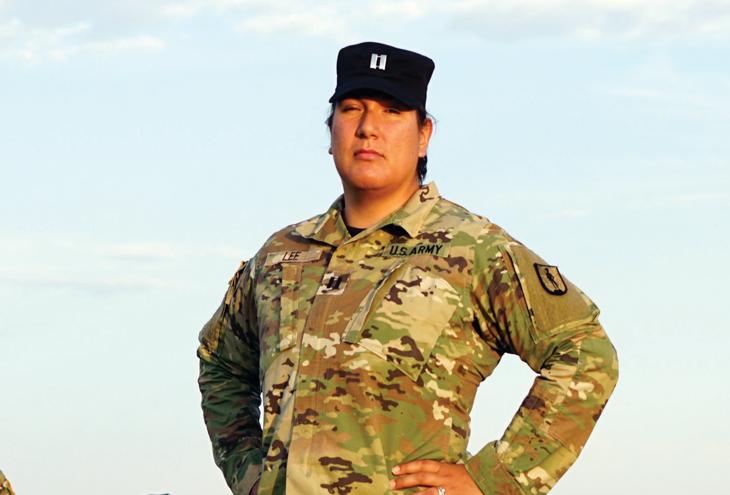When she remembers one of the main reasons she chose to pursue her PhD in chemistry at the University of Rochester in New York, Dr. Naomi Lee can’t help but chuckle. After obtaining an undergraduate degree in biochemistry at the Rochester Institute of Technology, Dr. Lee applied to a number of graduate programs and was accepted to them all. “I chose the University of Rochester because I was afraid to leave home,” she says. “I was afraid to leave for other schools because they were far from the reservation.”
Dr. Lee has done everything from judging local science fairs to teaching at tribal colleges to directly mentoring students and interns as she completed her own research and fellowships
Dr. Lee, the 2018 AISES Professional of the Year, grew up on the Seneca Cattaraugus Indian Reservation in western New York State, just a few hours’ drive from Rochester. But what makes that rationale for choosing her graduate school so amusing today is the fact that Dr. Lee’s life is now so peripatetic. A glimpse at her summer schedule tells the story: blocks of days finishing work as a postdoctoral fellow in molecular genetics and microbiology at the University of New Mexico interspersed with a trip to Baltimore for an American Indian health professionals training program at Johns Hopkins University; visits to Oklahoma to see her daughter and husband, who is based at Fort Sill; training with her New Mexico National Guard unit in Santa Fe; and a trip to Washington State to observe a National Institutes of Health–funded pilot project with Yakama Nation students — and that’s just some of Dr. Lee’s travels.
After a frenetic summer of activity, Dr. Lee moved to Flagstaff, Ariz., to begin her role as assistant professor in the Department of Chemistry and Biochemistry at Northern Arizona University. She will also continue her National Institutes of Health–funded research developing vaccines for infectious diseases and cancers, including cervical cancer. “Using chemistry to help fight disease is what got me interested in the field,” she says. “I saw that there was a way to use my research to develop vaccines.” Her motivation to translate her work and education is personal. In 2009, Dr. Lee lost both her parents as well as her last remaining grandparent to a range of ailments, including cancer and MRSA-related sepsis.
A desire to help others has propelled Dr. Lee in other ways. For the past nine years she has served in the Army National Guard, where she is currently a captain and the senior training, advising, and counseling officer at the New Mexico National Guard’s Officer Candidate School. In addition, one constant in her work through the years has been a commitment to mentoring Native STEM students — a need that was driven home by the fact that Dr. Lee was the only Native student to earn a doctorate in chemistry in 2013.
Dr. Lee has done everything from judging local science fairs to teaching at tribal colleges to directly mentoring students and interns as she completed her own research and fellowships. She is also working with a former undergraduate mentor on a National Science Foundation–funded project to develop teaching approaches that resonate culturally with Indigenous students. “It’s taking Western science and merging it with Indigenous knowledge as a way to better teach K–12 and early undergraduate majors,” she says. “It’s a way to relate back to our culture rather than teaching just Western science. After all, we are the original chemists and scientists, and this is a way to make that perspective more formal and relatable in education.”













